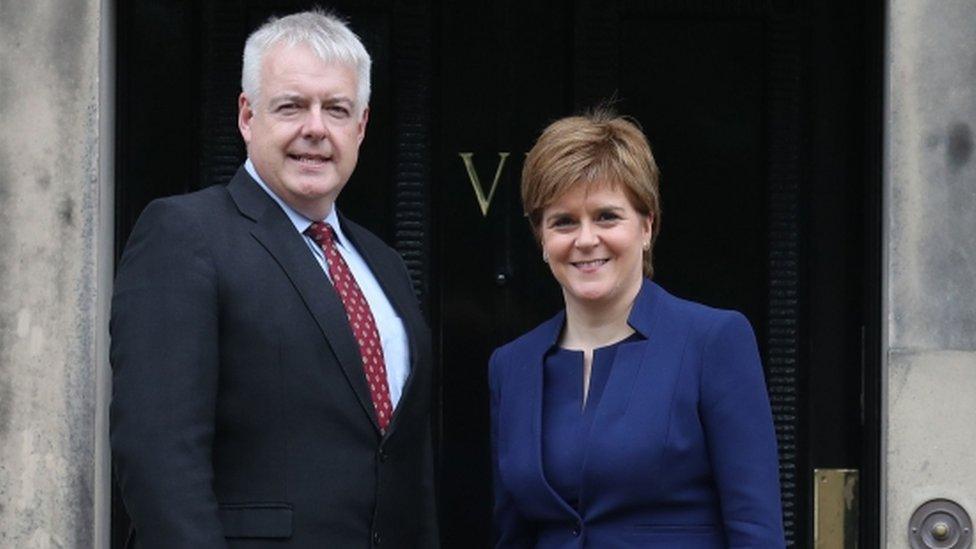Scotland's Brexit row in the Lords
- Published
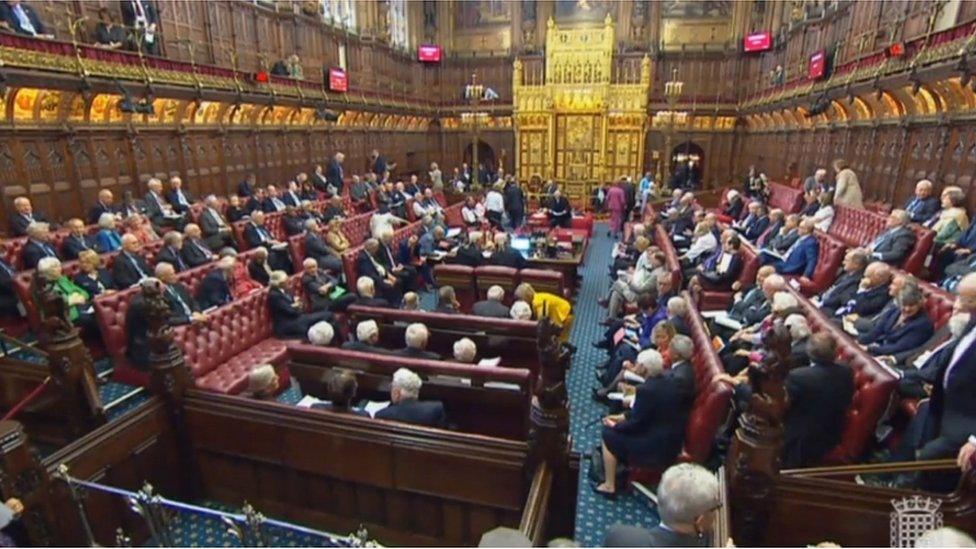
The House of Lords is currently considering the EU Withdrawal Bill
Democracy in these islands can be a curious concern. Scottish ministers are presently seeking to preserve, as they would see it, the carefully constructed powers of the elected Scottish Parliament.
Their latest attempt to do so relies upon, to varying degrees, the ancient but unelected House of Lords and the Privy Council, the venerable but comparably unelected body of advisers to the sovereign.
In making this point, I am not remotely blaming Scottish ministers, including the admirably persistent Mike Russell, the minister for mitigating Brexit (I shall keep naming him such until the title is adopted, formally).
Mr Russell has to play with the hand he is dealt. Across these islands, umpteen politicians are seeking to cope with the consequences of the popular decision to exit the European Union.
You will recall that there has been a prolonged controversy over the return of EU competences in devolved areas such as farming and the environment. Actually, delete "prolonged". Insert "Sisyphean".
You will recall further that UK ministers want to retain 24 of such powers at Westminster, on an interim basis, pending the creation of UK-wide frameworks governing such matters.
To which Mr Russell consistently replies "hang on a cotton-picking minute" (or would do should he ever resort to such demotic language).
These, he says, are devolved powers. That is, not reserved under the terms of the Scotland Act 1998 which established devolution. Therefore, they should return to Holyrood, pending the frameworks. Quod erat demonstrandum, as the Minister is much more likely to say.
The core, he argues, is consent. Holyrood's essential powers should not be altered, either by expansion or contraction, without consent.
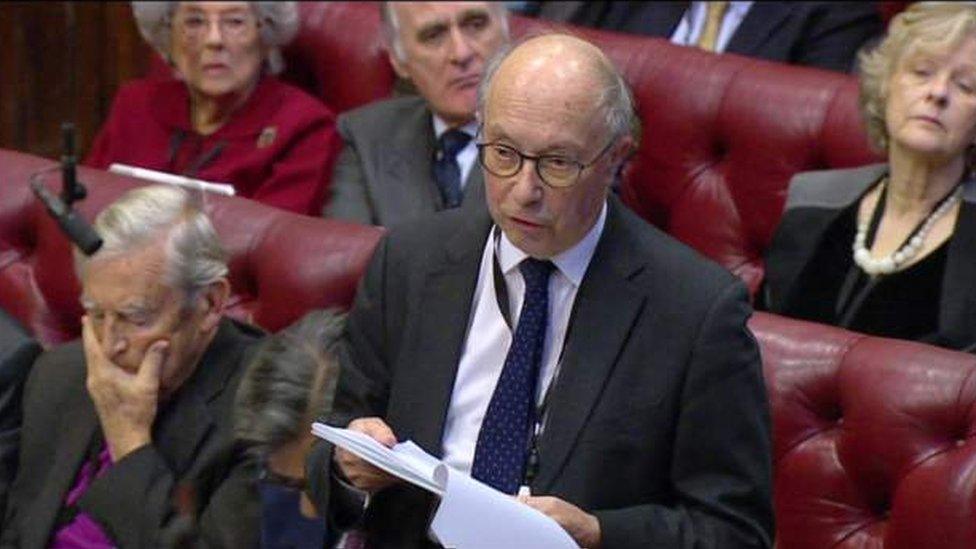
Lord Hope has tabled some of the amendments, although their genesis may lie with Scottish ministers
Which brings us to their Lordships. The SNP, as a body, tends to frown upon the Upper House, declining to nominate members.
But, as billed previously, needs must. Which is why Mr Russell is looking eagerly at amendments posed for debate tomorrow by Lords Hope of Craighead and Mackay of Clashfern, two exceptionally eminent figures in Scots Law.
It should be said that these amendments may not be entirely unfamiliar to the minister. As is entirely standard practice in such matters, their genesis may lie with the Scottish government itself.
We are dealing here with the very foundations of devolution, with the 1998 Scotland Act and the schedules of reserved and devolved powers.
It was envisaged then and since that any alterations to the Holyrood power panoply would happen by a method known as Type A. That required - and requires - consent from both Houses at Westminster. And, crucially, from Holyrood.
With regard to the current repatriation of powers, it is proposed to proceed by UK government regulation. Which requires Type C action. Involving consent from both Houses at Westminster. But not Holyrood.
Again in summary, Lords Hope and Mackay are proposing that the method used should not be Type C but should instead be Type A, via Orders in Council. That is, the Privy Council. Involving Holyrood consent.
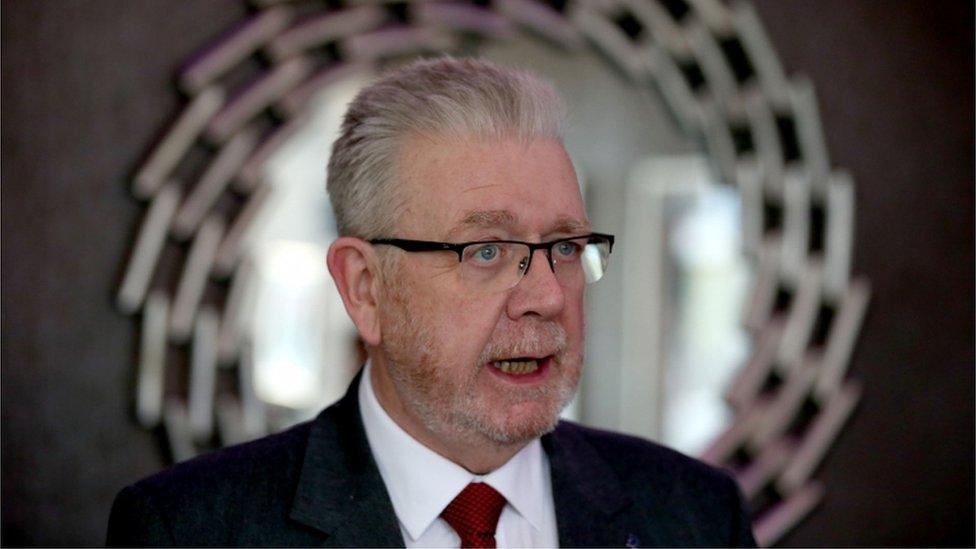
Mike Russell says he is not preparing for failure at the Supreme Court
At which point, attitude diverges. Scottish ministers say this is a possible break-through, the core of a deal. It could, they say, be substantiated at a meeting of the Joint Ministerial Council on EU negotiations tomorrow. If only UK ministers will consent (that word again).
Snag is, UK ministers do not remotely consent. They say that the Hope / Mackay amendments, while intellectually interesting, would still give devolved Holyrood a veto over the structure for repatriating post Brexit powers.
Indeed, the line from London is that these Lords amendments are diversionary. It is widely thought that they may be debated but may not be pressed to a vote. At the very least, though, this would oblige the UK government to state its position.
Mr Russell is rather gifted at satire but he has generally eschewed this talent while seeking to sustain consensus during this remarkable row. But he may be tempted into recidivism. He may be tempted to argue that there is indeed a parliamentary power-base seeking a veto, but it does not lie in Edinburgh.
He may note that the plan advanced by UK ministers - and accepted by Wales - obliges Holyrood to make a "consent decision". However, that decision need not be affirmative. Even if negative, Westminster may still proceed with its planned changes to powers.
One or two wags have commented, wryly, that it appears Lewis Carroll has been hired as a Parliamentary draughtsman at Westminster. To which, the sombre Westminster reply is that the procedure would allow Holyrood's position to be placed, alongside the UK view, in front of Britain's sovereign Parliament.
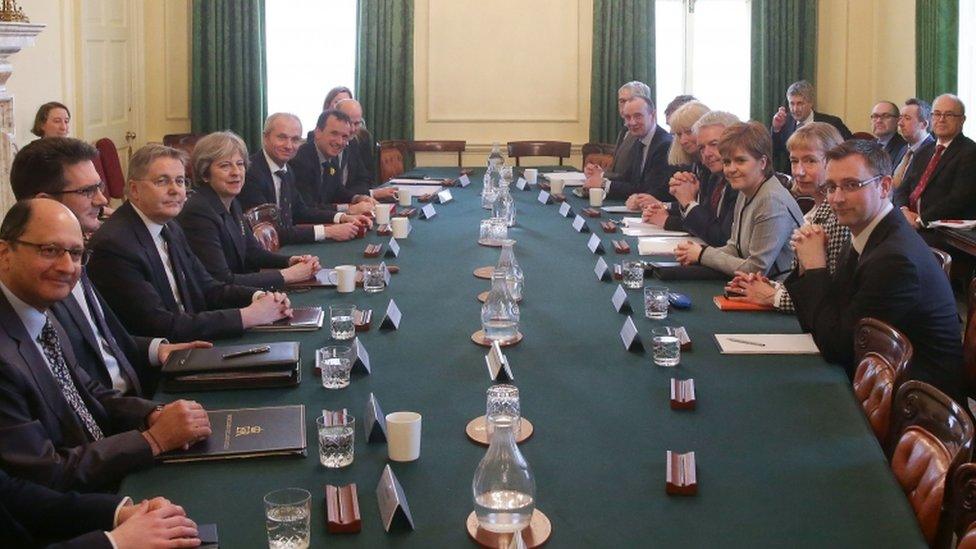
UK and Scottish ministers remain some distance apart despite a series of summits
So where are we? From London, one hears it said that it is time to move on. That Wales has settled for a compromise. That said compromise is still on offer to Scotland.
Asked about the JMC tomorrow, the same London sources say that it is not a summit on the issue of the disputed powers. That it is designed to address a range of post Brexit issues. There is a hint of weariness, affected or otherwise.
Which brings us back to political clout. When Wales settled, it was widely noted that this left the Scottish government rather more isolated. That it weakened a pan-devolution lever. Which is true.
However, we have since heard evidence given to a Commons committee, sitting in Edinburgh. At this hearing, Holyrood opposition leaders all said that the Welsh deal was not acceptable to Scotland, that it did indeed threaten to undermine devolution.
All - with one exception. The Conservatives. They previously backed a plea for concessions but now argue that the compromise deal is acceptable and should be endorsed.
With some justice, Scottish ministers turn the accusation of isolation upon their Conservative rivals. It is the Tories, they say, who are standing against Scottish democratic interests as advanced by the SNP, Labour, the Liberal Democrats and the Greens.
Where next? There may yet be a deal. Perhaps not through the Hope / Mackay amendments. Perhaps between Edinburgh and London, despite the projected languor of the latter.
Or it may end up in the UK Supreme Court, on the related matter of whether Holyrood's effort to translate EU competences into Scots Law are valid.
Mr Russell told a Holyrood committee today that he was not "preparing for failure", should that case be heard. Other observers say they will await the court's verdict, should it be required. As do we all, with varying degrees of fascination.
- Published30 April 2018
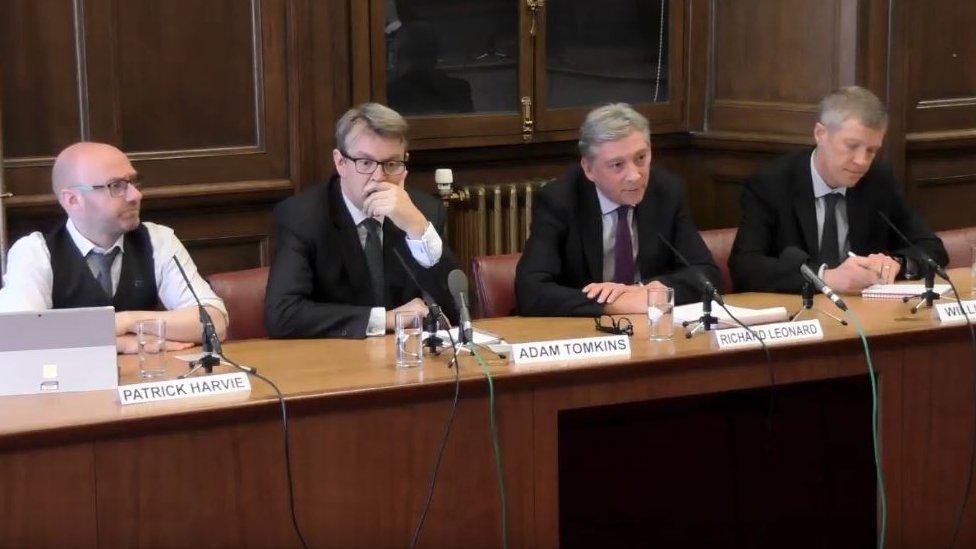
- Published16 May 2018
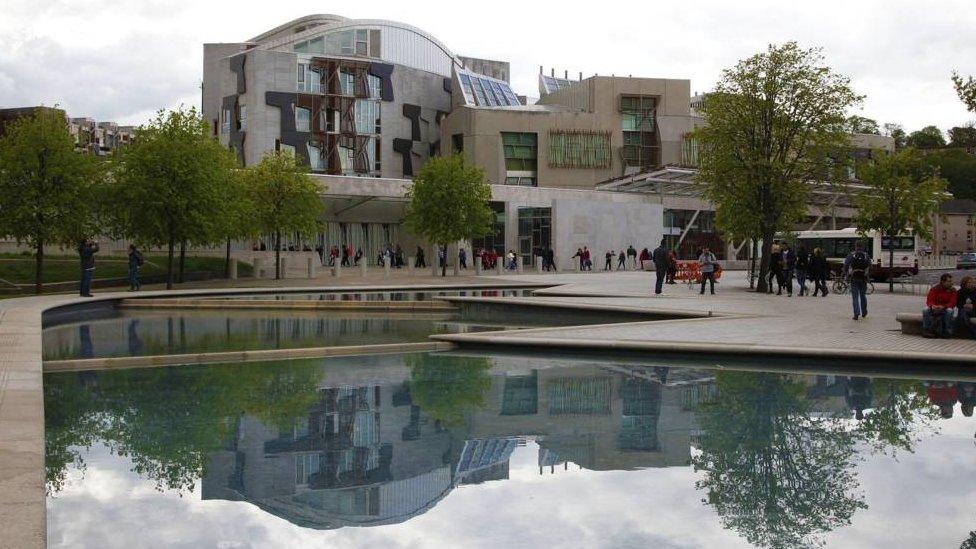
- Published24 April 2018
